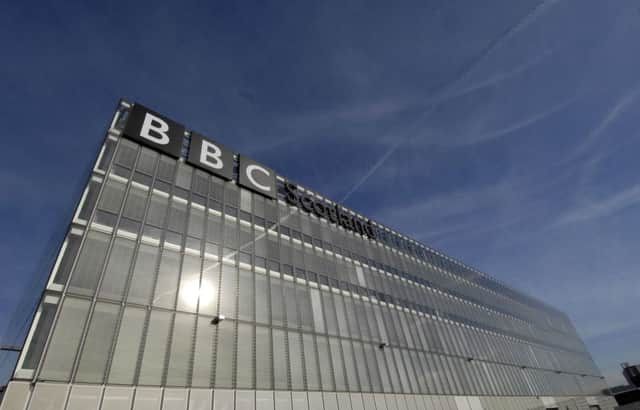Leaders: BBC must not be cowed into partiality


The corporation was held up as a model of cynical partiality and accused of deceiving voters by many, including former First Minister Alex Salmond, who wished to see the break-up of the United Kingdom. On a number of occasions, pro-independence campaigners gathered in their thousands outside the BBC’s Scottish headquarters to demand the dismissal of journalists they believed had transgressed. It seemed, at times, that the national broadcaster had become little more than a whipping boy.
We have never subscribed to the view that the BBC acted inappropriately during the long and frequently testy referendum debate. Yes, journalists demanded answers to difficult questions and challenged blithe assertions, but this represented nothing more than the corporation’s staff carrying out their duties. It is in the interests of all for politicians to be held to account and we believe the BBC played its part in doing so with distinction.
Advertisement
Hide AdAdvertisement
Hide AdNews that an advisory board to the BBC Trust has urged the broadcaster to carry out a review of how it covers “controversial political issues” affecting Scotland will, doubtless, be seized upon by some as evidence that a problem exists.
That advisers have warned of public concerns about impartiality and the quality of analysis when it comes to coverage of Scottish public life will surely further encourage the perception that all is not as it should be in the corporation’s newsroom.
Bill Matthews, chair of Audience Council Scotland, the body which advises the trust, says that while the corporation continues to produce “high quality independent journalism” from Scotland, its network coverage is “inadequate” and was seen as having adopted an “Anglified” perspective” when reporting, to the rest of the UK, on the referendum.
Of course, it is legitimate for anyone to raise concerns: the BBC must be impartial. It is also legitimate – even necessary – for any large organisation to continually review its procedures. There will frequently be room for improvement.
So, we welcome the call for review of the BBC’s reporting of Scottish issues. Scotland’s political landscape has changed and – while it should not be expected to fall into line with any new political consensus – the corporation may benefit from closer examination of the way it delivers news from Scotland.
But this cannot become an opportunity for those with vested interests to apply undue pressure to the corporation. Our national broadcaster must always be free to ask difficult questions of those in power, no matter who they are or what policies they espouse.
Why we should keep boldly going…
IT’S a photograph that causes the jaw to drop. For decades, we have known of the existence of Pluto, sitting on the outer edge of our solar system. Now, thanks to the brilliance of Nasa scientists, we can gaze upon it, picking out a remarkable degree of detail.
The New Horizons spacecraft yesterday sped past the planet at 14km a second, capturing an image that stands testament to the brilliance of human endeavour. Pluto orbits the Sun more than three billion miles away from Earth. It’s difficult to put that into perspective: but we can all agree that it’s a very long way, indeed.
Advertisement
Hide AdAdvertisement
Hide AdFrom time to time, space exploration is dismissed as an expensive indulgence. Why, ask some naysayers, should gargantuan sums of money be spent exploring the solar system and beyond when there are so many problems to address here on Earth? But we were exhilarated by the image of Pluto captured by New Horizons. It speaks of the best of scientific progress, of the importance of ambition and the questing mind.
Space exploration has, in the past, led to innovations – from improved firefighting equipment to memory foam to freeze-dried food – that we now take for granted. Who knows what new scientific discoveries might result as mankind continues to explore billions of miles into space?
But let’s not feel obliged to find a practical justification for this latest giant leap. It is, we feel, enough to explore space because it is there; the satisfaction of our curiosity and the testing of our ingenuity are reasons enough for us to keep searching, to travel further, to see far beyond our horizons.